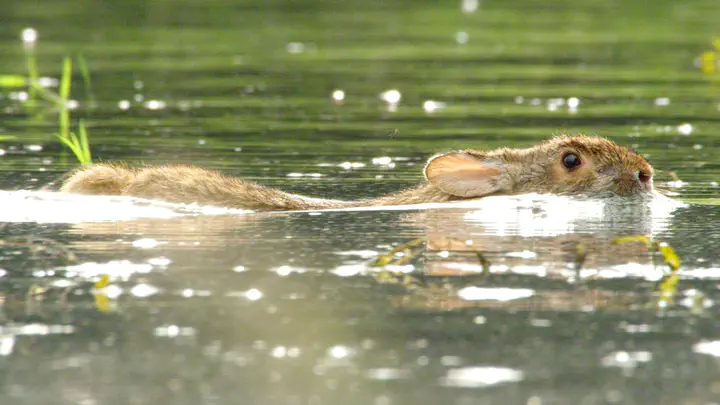Missouri Swamp Rabbit Distribution

The Missouri Swamp Rabbit Project is a collaboration between Southern Illinois University-Carbondale and the Missouri Department of Conservation (MDC) and is led by M.S. student Kylie Bosch. Not to be confused with the marsh rabbit (S. palustris), swamp rabbits (S. aquaticus) are one of the least studied rabbit species in the U.S. While their range stretches from the southeastern United States to the southern reaches of Missouri, Illinois, and Indiana, swamp rabbits have historically existed in relatively small populations across southern Missouri. Due to low abundance and conversion of bottomland hardwood forests and swamps to agricultural land, swamp rabbits are listed as a species of conservation concern in Missouri.
Swampers, as they are often called, are unique among other rabbits in that they’re one of few species that readily swim. They use this skill to escape predators and travel throughout their home range. Thus, the importance of swamplands, floodplains, and other riparian areas cannot be understated. They function as an important food source for predators such as foxes, coyotes, bobcats, and raptors, and are a popular game species with hunters for fur, meat, and sport. Additionally, their food habits influence plant communities by dispersing seeds and grains. The Missouri Dept. of Conservation has conducted a decadal swamp rabbit census dating back to the early 1990s, and this study will complete the 2020 census. A compilation of forty years’ worth of data will be examined to assess changes in the distribution of the swamp rabbit across southeast Missouri. To accomplish this, sites from past censuses will be re-surveyed for swamp rabbit presence, and data on habitat loss and changes in flooding regimes across these sites will be collected. Once analyzed, these data can be used to inform management decisions regarding swamp rabbit habitat and their status in Missouri, as well as guide future objectives to ensure the continued persistence of this charismatic and ecologically important species.